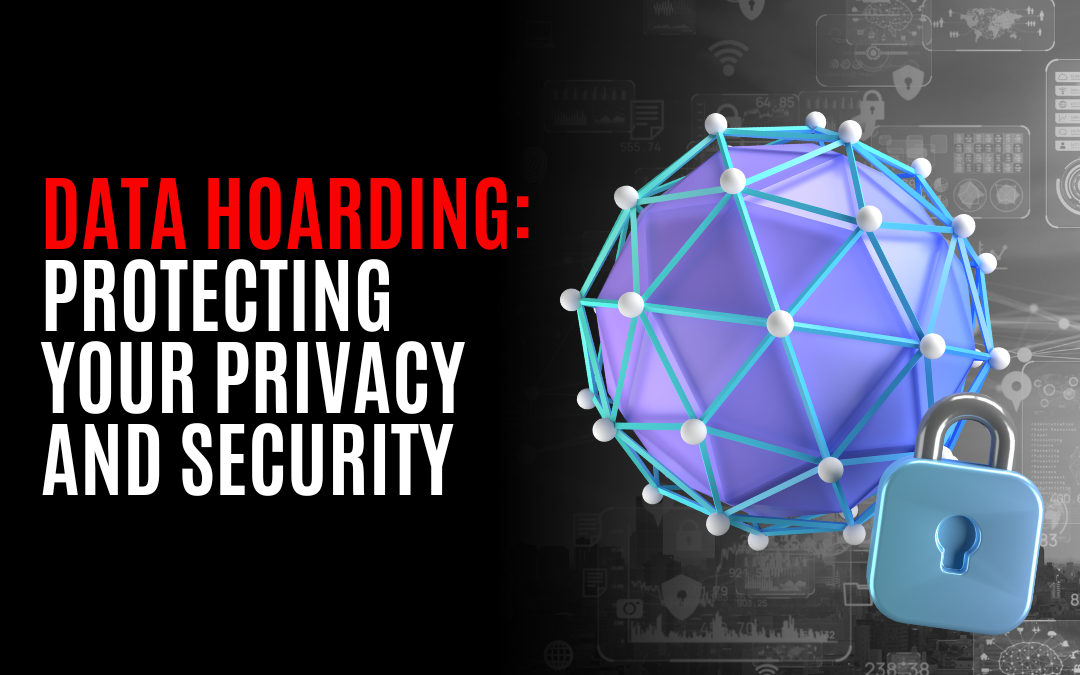In this day and age, where cyber threats and data breaches are lurking around every corner, it’s crucial to take control of the information we store on our computers.
So, let me start by asking you this: do you hoard data like your Great Aunt Ethel hoards porcelain cats? 🐱 If so, it’s time to declutter your digital life! Let’s explore why data hoarding is bad for privacy and security (trust me, you’ll want to listen up!) and figure out which types of data we should be deleting from our computers.
☁️ Section 1: The Perils of Data Hoarding ☁️
Imagine this: you open your email one fine morning, only to discover that some sneaky hacker has raided your account. How did they do it? By stealing personal details buried deep within the depths of your emails from years ago. 😱 This tale isn’t outlandish; storing excessive amounts of data can leave us vulnerable to cyber attacks or accidental leaks.
When all that unnecessary data piles up on our computers like old comic books in a forgotten attic, it becomes harder for us to keep track of what’s vital and what’s just taking up precious disk space. But fear not! It’s never too late to whip things back into shape.
💻 Section 2: Sorting Through the Digital Clutter 💻
Now that we understand the perils of holding onto mountains of digital baggage let’s roll up our sleeves and start decluttering! Here are my favorite ways to identify which types of data deserve the axe:
1️⃣ Unused Applications: Yep, those apps you used once and then forgot about. Uninstalling them not only frees up disk space but also minimizes the potential for security vulnerabilities.
2️⃣ Duplicate Files: Do you really need ten identical copies of that vacation photo? Nah, I didn’t think so either. Use tools like Gemini (https://macpaw.com/gemini) or Duplicate Cleaner (https://www.duplicatecleaner.com/) to sniff out those duplicates and bid them farewell.
3️⃣ Old Downloads: Remember that PDF manual from three years ago? Most likely, it’s gathering digital dust on your hard drive. Clean up those forgotten files by deleting outdated downloads and reclaiming some valuable storage.
📂 Section 3: Clearing Out Your Digital Closet 📂
Alright, let’s dive deeper into our digital closets and find more items ready for deletion. Here are a few more categories of data we should consider parting ways with:
1️⃣ Unused Accounts: Have you ever signed up for an online service, used it once, and then never returned? We’ve all been there! Go through your email inbox and delete any unused accounts or newsletters clogging up your precious cyber real estate.
2️⃣ Old Emails: Speaking of inbox clutter, do you really need emails from five years ago? Ask yourself if there’s any crucial information in these ancient correspondences; if not, don’t hesitate to shift them into the trash bin.
3️⃣ Browser Cache & Cookies: Clearing out your browser cache (Google Chrome users can find instructions here ➡️ https://support.google.com/accounts/answer/32050) removes temporary internet files that companies use to track your online behavior. Regularly deleting cookies helps maintain a higher level of privacy while browsing the web.
🗑️ Section 4: The Art of Secure Data Shredding 🗑️
When it comes to sensitive data, simply moving files to the trash and hitting the delete key won’t cut it. Oh no, those pesky hosers can still pry into your discarded bits and pieces. To ensure proper security, consider permanently deleting certain types of data using these methods:
1️⃣ Secure File Deletion: For individual files or folders, encryption tools like AxCrypt (https://www.axcrypt.net/) or secure shredding software like Eraser (https://eraser.heidi.ie/) can securely overwrite the deleted data, making it nearly impossible for anyone to recover.
2️⃣ Wiping Hard Drives: If you plan on getting rid of an old computer, remember that your hard drive likely contains sensitive information. To wipe your hard drive clean before selling or recycling your device, check out DBAN (Darik’s Boot and Nuke) at https://dban.org/.
🌐 Section 5: The Cloud Conundrum 🌐
Ah yes, the cloud – a digital storage oasis in the vast expanse of cyberspace. But is it safe? While cloud services generally offer robust security measures, there are a few things to consider:
1️⃣ Choose Reliable Providers: Opt for reputable cloud service providers with advanced encryption standards and strong privacy policies. Do some research before trusting them with your valuable info.
2️⃣ Delete Unused Data: Don’t let cobwebs form in your cloud accounts! Regularly audit and remove any outdated or unnecessary files stored in the cloud – you never know when a breach might occur.
3️⃣ Enable Two-Factor Authentication: Adding an extra layer of security by enabling two-factor authentication (2FA) adds an extra hokey pokey move for hackers to master.
🔒 Section 6: Celebrate Your Digital Spring Cleaning 🔒
Congratulations on completing this heroic journey through data hoarding and privacy protection! By deleting unnecessary data, you’ve fortified your privacy castle and reduced the risk of cyber mishaps. Remember, digital cleanliness is a lifelong commitment.
So, grab that fancy feather duster and repeat after me: “I shall not hoard irrelevant data anymore!” Together, we’ll make cyberspace a safer place for all. Now go forth, dear friend, and enjoy your clutter-free digital haven! 🌈🚀
Remember: Your security is in your hands. Make it count! 💪
Have any questions or want to share your own decluttering tips? Drop a comment below; I’m here to chat!


